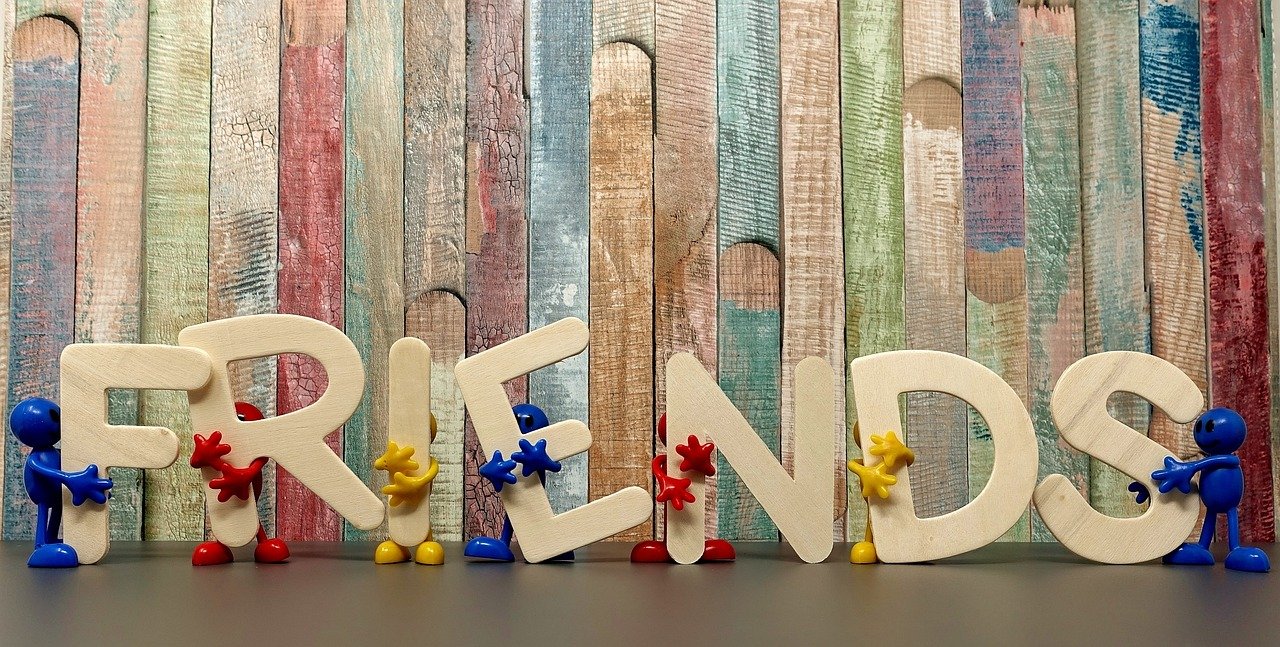In today’s digitally connected world, where friendship are often measured by the number of social media followers or likes, the true essence of meaningful relationships can easily get lost. The age-old saying, “Always keep your circle small,” offers profound wisdom that is more relevant now than ever. It reminds us that, while it’s easy to surround ourselves with many people, genuine friendship—the kind that offer trust, loyalty, and emotional support—are what truly matter.
Why Genuine Friendship Are Essential for Well-Being
A story is often told of a young boy who once asked a wise person whether friendship were truly necessary in life. The wise person replied, “Yes, indeed, they are.” Life, while often appearing smooth and manageable, is filled with unexpected twists and challenges. During these tough times, having a friend who truly understands you—a person you can confide in and who stands by you no matter what—can make all the difference.
True friends serve as more than just company; they offer emotional support, a listening ear, and a sense of security during life’s most difficult moments. These friends provide encouragement when you’re down, help you see things from a different perspective, and give you a feeling of belonging. In many ways, the health of your friendship is directly linked to your emotional well-being and personal growth. Studies have consistently shown that people with close friendship tend to have better mental health, lower stress levels, and even longer life spans.
The depth of connection with close friends also enhances your ability to understand yourself. When friends offer honest feedback, you become more aware of your strengths, weaknesses, and areas for improvement. These relationships foster self-awareness and help you navigate your identity with the comfort of knowing you’re supported and accepted.
The Hidden Dangers of Fake Friends
However, not all friendships are created equal. The young boy, still curious, asked the wise person a follow-up question: “Is a fake friend more dangerous than an enemy?” After a moment of reflection, the wise person replied, “Yes, indeed, they are more dangerous.”
The wise person explained that while an enemy makes their intentions clear, allowing you to anticipate their moves and prepare, a fake friend is different. A fake friend knows your vulnerabilities, weaknesses, and innermost thoughts, using them to their advantage. They gain your trust, only to betray you when you least expect it. While enemies stand on the opposite side, a fake friend’s betrayal comes from within, making their actions all the more painful and harmful.
Fake friends can have a detrimental impact on your emotional health. They may introduce negativity, manipulate your feelings, or even sabotage your successes out of jealousy or personal gain. Maintaining fake friendships for the sake of popularity or social image is a slippery slope that can lead to emotional exhaustion and decreased self-esteem. Recognizing the value of genuine connections over superficial ones becomes essential in protecting one’s peace of mind and emotional resilience.
The Wisdom of Keeping a Small Circle
To avoid the pain of fake friendships, the wise person offered the young boy a valuable lesson in the form of an analogy: “Imagine you must choose between a small garden and a vast forest. Tell me, where do you think you’d find more snakes and scorpions?”
The boy thought for a moment and answered, “In the forest.”
The wise person smiled and said, “Exactly. A small garden is enough for peace.”
This analogy speaks volumes about the importance of maintaining a small, close-knit circle of friends. Just as a small garden offers a sense of control and security, a smaller group of trusted friends provides a peaceful environment where trust can grow, and loyalty can thrive. By keeping your circle small, you reduce the risk of betrayal and protect yourself from the emotional harm caused by superficial or dishonest relationships.
In a small circle, each person is carefully chosen, and the relationships are nurtured with care. These friendships are based on mutual respect, understanding, and a deep sense of connection. Just as a garden requires constant tending, close friendships thrive with consistent communication, empathy, and support. When your social group is more like a small garden than a vast forest, you can rest assured that those in it are there for you during both good times and bad, offering unwavering support and companionship.
Benefits of a Small Circle on Mental and Emotional Health
Having a small circle of trusted friends doesn’t only provide a sense of security; it also significantly boosts mental and emotional health. When you know you can trust those around you, you feel more relaxed, confident, and resilient. Genuine friends support each other’s goals and push each other to become the best versions of themselves. They celebrate your successes wholeheartedly and offer constructive advice during setbacks.
Furthermore, a small circle encourages openness and vulnerability, essential elements of healthy communication. Without the pressure to maintain a large social network, you can focus on deepening the bonds that truly matter. In smaller social groups, people tend to be more authentic, which fosters an environment where everyone can express themselves without fear of judgment.
Conclusion: Quality Over Quantity in Friendship
In an era dominated by social media, where having a large network of friends and followers is often seen as a measure of success, it’s easy to lose sight of what truly matters. The wisdom shared by the wise person in the story teaches us that quality always trumps quantity when it comes to friendships. A few close, loyal friends are far more valuable than hundreds of superficial acquaintances who don’t truly know or care about you.
By keeping your circle small, you create a personal sanctuary—your own peaceful garden—where you’re surrounded by people who genuinely care about your well-being. These relationships offer security, peace of mind, and a sense of belonging. They protect you from the emotional turmoil that often comes with maintaining too many superficial connections, sparing you from unnecessary drama or betrayal.
In the end, it’s the strength of the bonds you share with your closest friends—not the number of friendships—that determines the richness of your life. Choose your friends wisely, tend to your small garden, and watch as it grows into a place of trust, loyalty, and genuine connection. A small circle doesn’t limit your life; it enhances it by filling it with the kind of friendship that truly matter.





